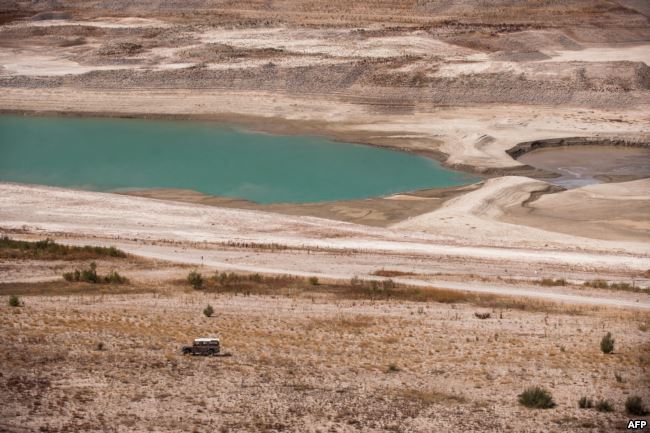Erbil – Kurdistan Regional Ministry of Agriculture and Water Resources announced that Iran has for over the past ten days been cutting the flow of Little Zab River, creating a suffocating water supply problem.
The ministry declared it will resort to the UN and international community to stop Tehran’s policies.
Kurdistan’s Minister for the Agriculture and Water Resources Abdulstar Majeed told Asharq Al-Awsat that water from Little Zab River was cut off from Kurdistan after Iran completed the construction of the Klousa dam near Sardash, which flows into Qaladze. The river provided 60 percent of the water flowing to the region’s Dukan dam.
“We cannot provide necessary drinking water to the residents of Qaladze,” he warned.
Majeed said he reported the issue to the Region’s Prime Minister and his deputy, underlining the dangers of the water supply cut. He also spoke to the Iranian Consul General in Kurdistan and other officials and even informed the Iraqi government.
“Iraq is the biggest loser in this problem” and Baghdad has to step up and get involved as the issue of water is a “sovereign one,” according to the minister.
He believed that the Iraqi government should intervene to solve the crisis, adding that the region will exert all efforts to end it.
He pointed out that Iran informed the Region that the water supply will be restored two days after its cut off, but the authorities did not commit to their promise.
The Iranian regime had been building dams for over a decade on rivers originating in Kurdistan-Iran and flowing into Iraq’s Kurdistan Region. So far, Tehran has constructed nine dams over Little Zab River and eleven on Sirvan River.
Iranian authorities claimed that they cut the water supply to fill the Klousa dam, which according to Majeed, is scientifically incorrect given that summer is not the season to store water and all countries release their supplies by June.
He added that the development coincides with a time when Kurdistan is preparing for an independence referendum, meaning that Iran wants to use the water problem for political purposes. If this is not the case, then Tehran must resolve it and release the water.
Currently, Kurdistan is using water from Dukan dam and may in the future use water from Darbandikhan dam.
Tehran’s measure forced Kurdish authorities to reduce supplies from the region to some Iraqi ones from 180 cubic meters to just over 50 cubic meters with around 90 thousand citizens depending on the water.
Majeed threatened to send complaints to the UN and other international authorities and embassies in Kurdistan, mainly the US and UK. He added that Iran should commit to the international treaties related to transboundary waters.
